Exploring fingerstyle on ukulele. This lesson covers the common terms used for identifing the fingers used. And, presents a series of single and multi-string exercises for exploring and developing the techniques needed for this style.
Fingerstyle on `Ukulele - Single and Multi String Explorationon: Bluesky • facebook • twitter (X)
Exploring fingerstyle on ukulele. This lesson covers the common terms used for identifing the fingers used. And, presents a series of single and multi-string exercises for exploring and developing the techniques needed for this style.
Available for Premium Site Access Plans Only
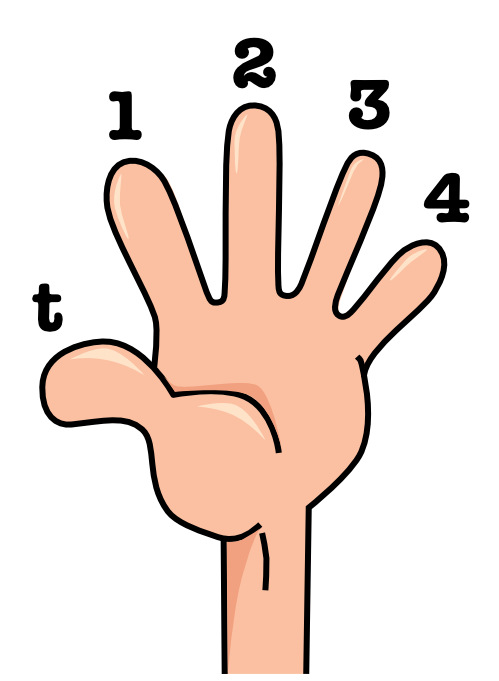

- Thumb ( t ), not really a finger but a digit. In classical guitar notation this is Pulgar, Pollex (p)
- Index ( i ) finger. In classical guitar notation Indice, Index (i)
- Middle ( m ) finger. In classical guitar notation Medio, Medius (m)
- Ring ( r ) finger. In classical guitar notation Anular, Aanularius (a)
- Pinky ( p ) finger. In classical guitar notation Mignolo (c, x or e)
 So, one day I decided to finally get a handle on fingerstyle using my thumb and three fingers. I had developed my "travis" style fingerpicking, where you use your thumb, index and middle fingers. But not "legit" a.k.a. classical fingerstyle.
So, one day I decided to finally get a handle on fingerstyle using my thumb and three fingers. I had developed my "travis" style fingerpicking, where you use your thumb, index and middle fingers. But not "legit" a.k.a. classical fingerstyle.
So, it was during a one hour drive home in a thunderstorm — more like a hurricane, that I practiced, t i m r on the open strings of my Fluke ukulele, which was lying on the passenger seat. No chords, only did t i m r for one hour plus. I focused on getting a clean sound, even volume and tone. Starting S L O W and only after many reps did I increase the tempo. I only did t i m r for the whole hour, no other combinations. I then practiced accenting one of the strings in the sequence. t i m r, t i m r, t i m r, t i m r
Multi String Combinations

Two finger, multi string example starting on the thumb (t), C tuning with a high G string four.
Two Finger, Multi String Combinations
The two finger combinations can be done using any two fingers: t i, t m and t r. Al are possible for adjacent or non-adjacent strings.
There are only 12 possible two finger, multi string combinations. These are the same as the two finger, single string combinations. The difference here is to play the two strings together, harmonically.
When playing harmonically t i produces the same sound as i t.
There are six (6) multi-string combinations using two fingers when playing both notes together.

Three Finger, Multi String Combinations
There where 24 possible three finger, single string combinations.
There are four (4) multi-string combinations using three fingers. Explore using different fingering combinations.
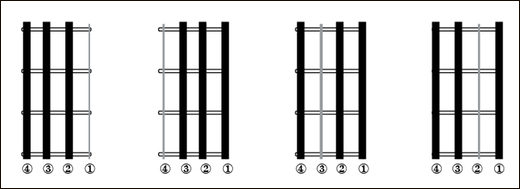
The Only Four Finger, Multi String Combination
There where 24 possible four finger, single string combinations.
There is only one (1) four string-multi string combination and only one way of playing the four string if not using your pinky: t i m r
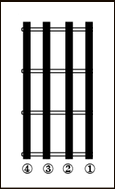
Related Lessons, Videos, Lesson Series, Songs, Books & Reference Charts, Resources & Assets, Workshops are below.
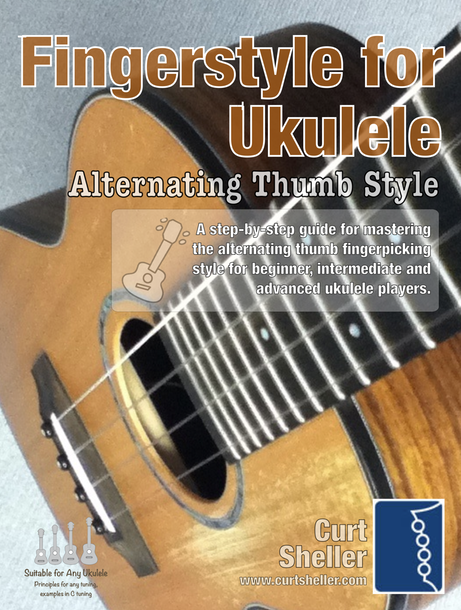
There are two common styles of fingerpicking on ukulele. This series of lessons explores the Alternating Thumb Style. A future series will explore the Thumb and three finger style, the traditional p i m a classical guitar style that we’ll adapt to ukulele.
Fingerstyle on `Ukulele - Single and Multi String Exploration.
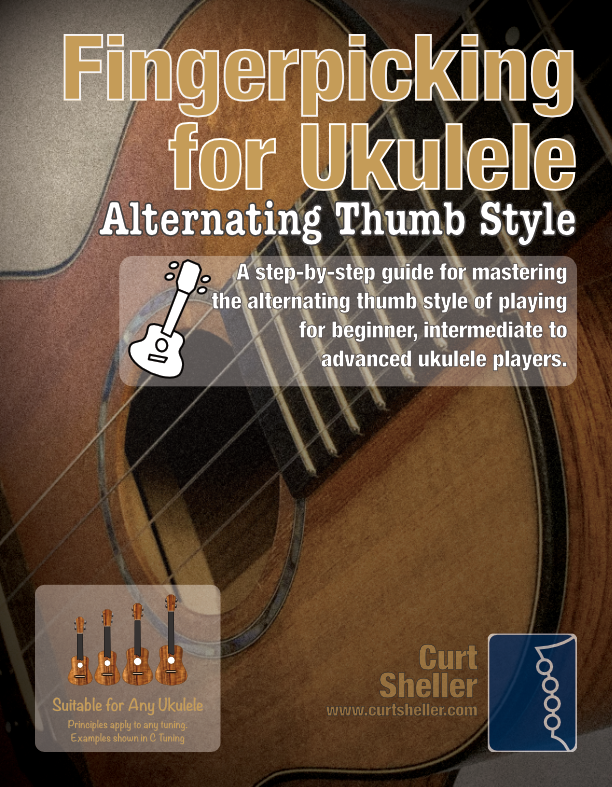
Fingerpicking for Ukulele - Alternating Thumb Style, 2nd Edition is a new expanded edition that focuses on the alternating thumb fingerpicking style through a series of graduated lessons-chapters incorporating your index and middle fingers with the alternating thumb.
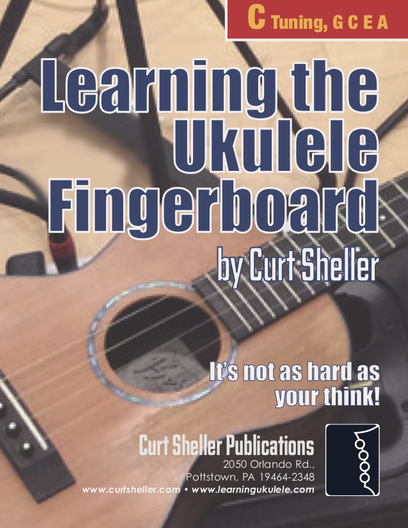
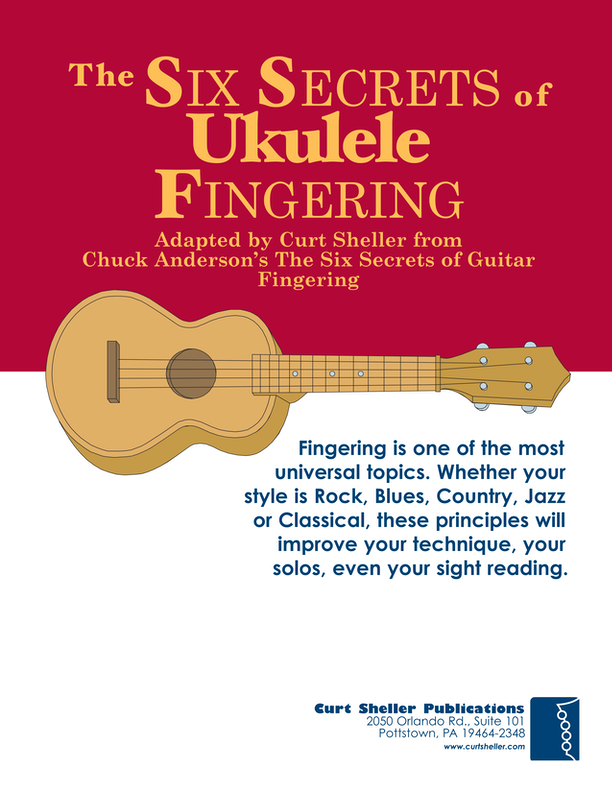
return in your investment)—it is this— learning the
f*ckingnotes of your OWN instrument. Sorry for the tough talks—but it is sooooo true!
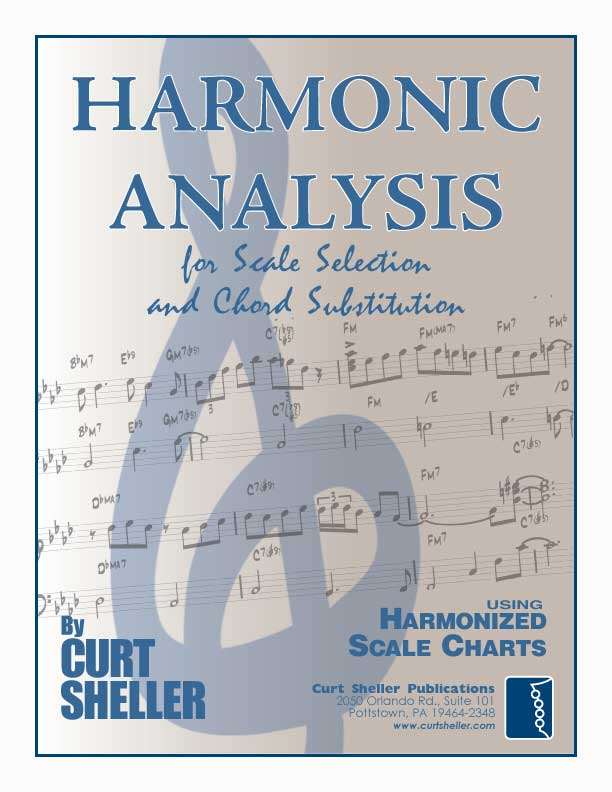
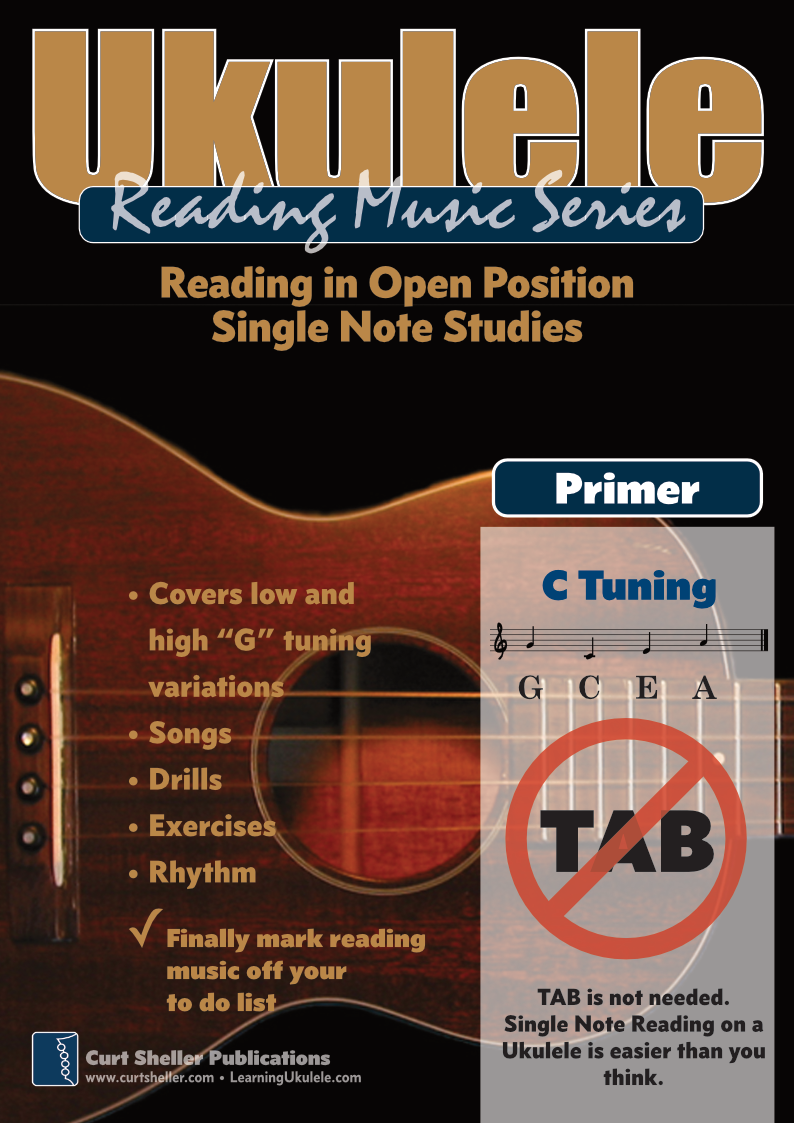
Learn to read single note melodies in the first/open position is a lot easier than you might think. Book: Ukulele – Reading Music Series – Primer
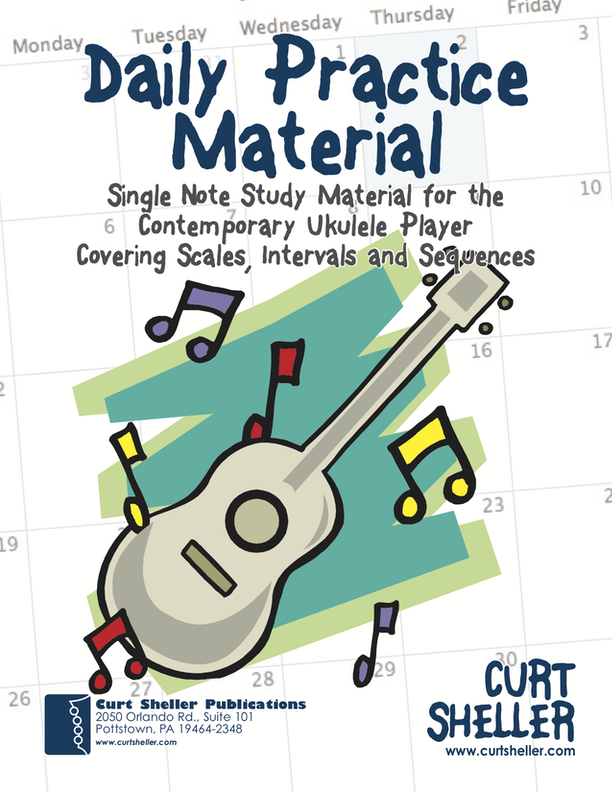
An organized collection of daily practice and reference material for the contemporary ukulele player for developing the vocabulary and knowledge necessary for single note playing. Book: Daily Practice Material for the Contemporary Ukulele
Checkout the Books & Reference Charts for additional Handy, Dandy Reference Charts.
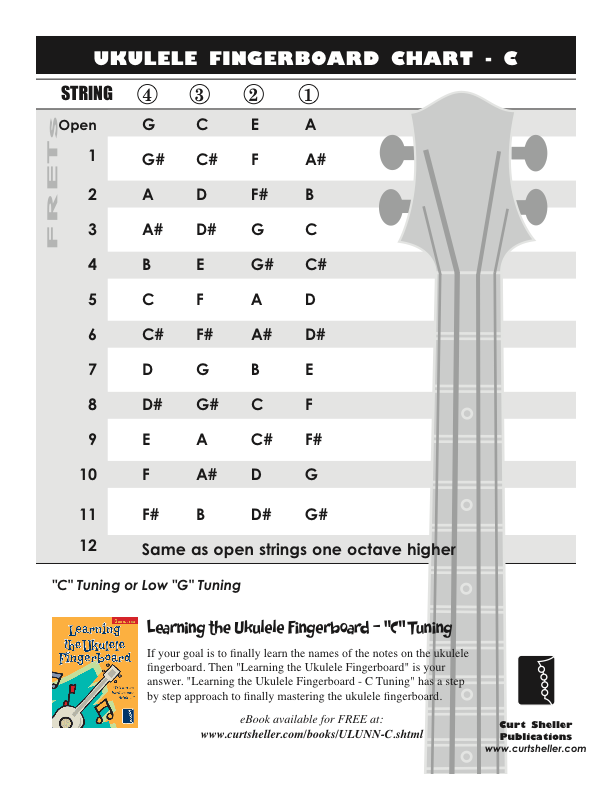
Ukulele Fingerboard Chart for C Tuning, Low or High G – G C E A
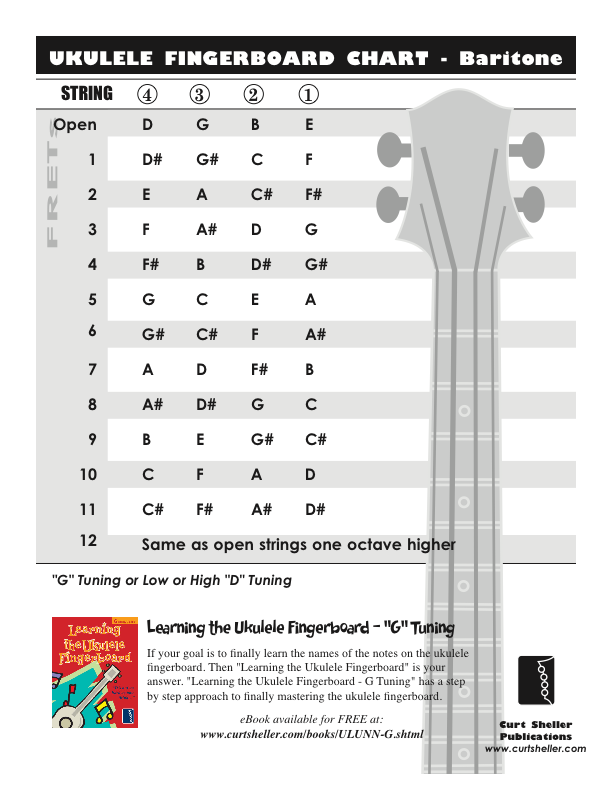
Ukulele Fingerboard Chart for G Tuning, Low or High A – D G B E
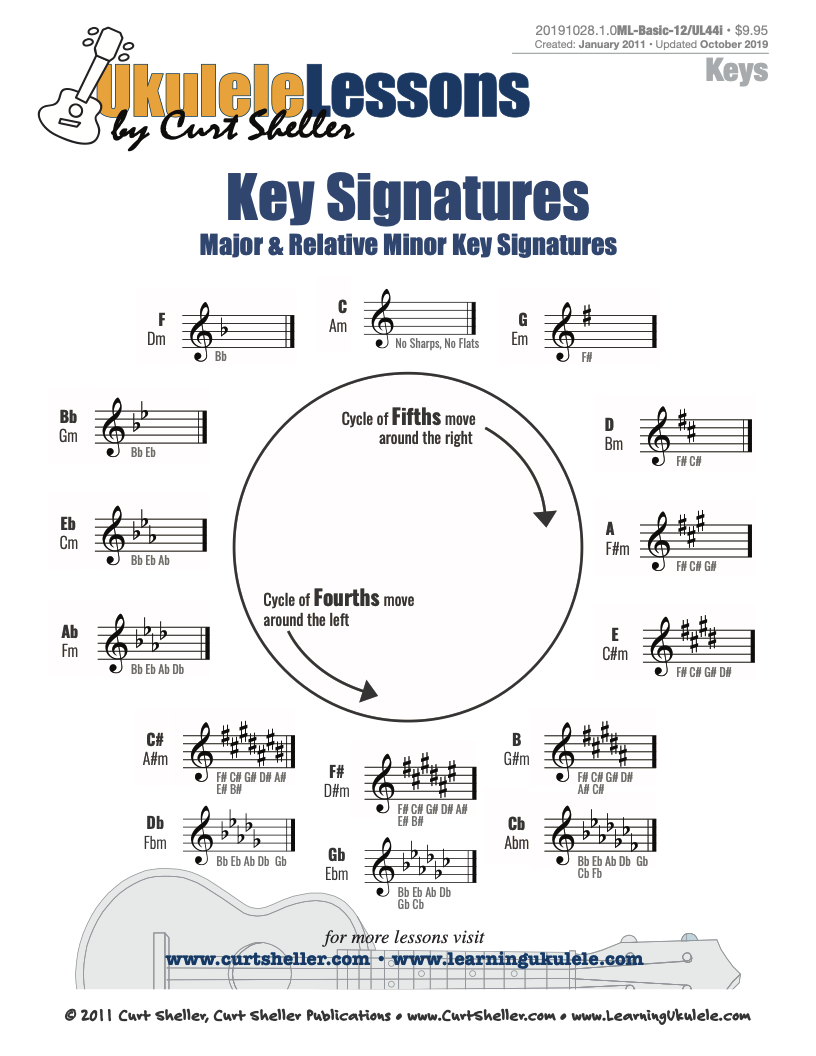
A handy reference chart of all 15 major and relative minor key signatures. US Letter 8.5 x 11 sized (ANSI-A) , A4



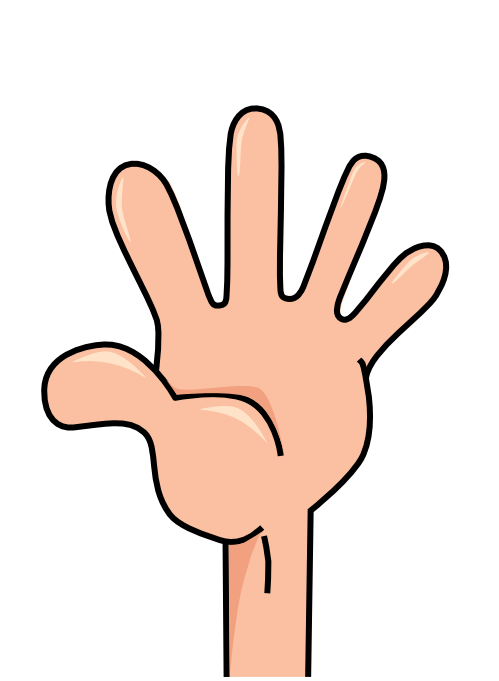
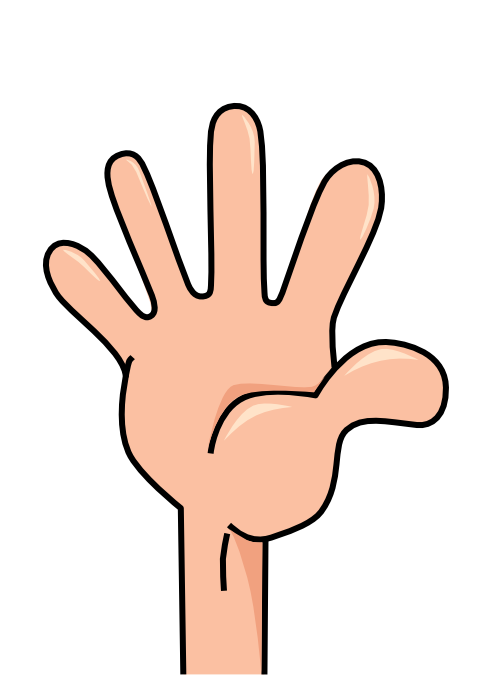
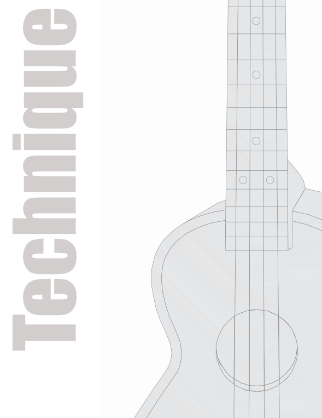
.jpg)